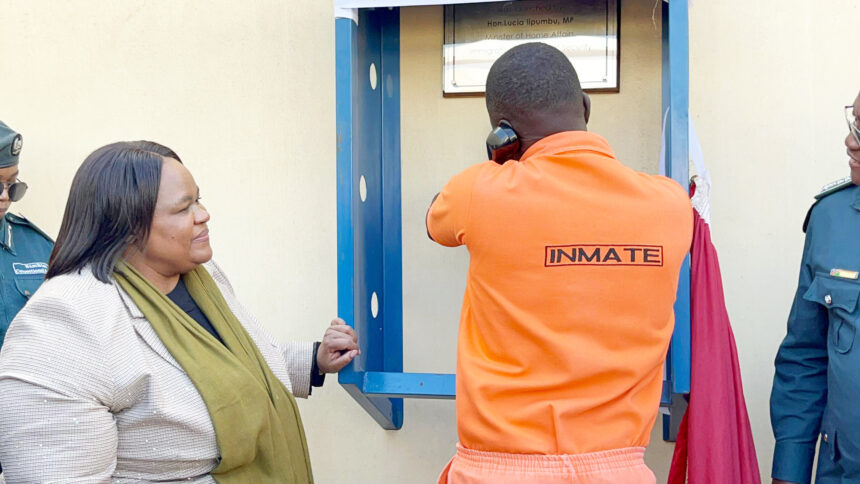WALVIS BAY – Namibian correctional facilities have seen a significant decline in terms of cellphone smuggling following the introduction of the Telio Inmate Telephone System.
Telio provides inmates with secure communication capabilities while maintaining security and control within correctional facilities.
It focuses on one-way calls from inmates to approved contact numbers, recording all calls, and enabling family members to purchase airtime for inmates.
The system, after a successful test run in the Windhoek correctional facility, was launched on Friday at the Walvis Bay Correctional Service.
The system, which will be rolled out across all correctional facilities in the country, aims to strengthen family connections, improve inmate behaviour, and contribute meaningfully to the broader rehabilitation and reintegration efforts of the Namibia Correctional Service (NCS).
Not just a telephone
Minister of Home Affairs, Immigration, Safety and Security Lucia Ipumbu, who inaugurated the system on Friday, said the system plays a central role in Namibia’s journey toward a rehabilitative and digitally transformed justice system.
“This is not just a telephone system – it is a platform for empowerment, reform and reintegration,” she stated.
Ipumbu said the Telio system aligns with President Netumbo Nandi-Ndaitwah’s vision of a tech-savvy, including Namibia as rooted in the SWAPO Party manifesto.
She commended Telio for fully funding the infrastructure, including secure real-time top-ups, centralised monitoring and administrative access for correctional officials.
“This setup strengthens oversight, maintains accountability and ensures communication is secure and ethical. The calling rates remain within the bounds of public payphone regulations, showing that Telio has not only invested materially but also ethically in our society,” she added.
Restoring dignity
Ipumbu said rehabilitation starts with restoring human dignity, as inmates begin to heal when they talk to their loved ones.
“They remember who they were before the offence. That emotional reconnection helps prepare them to return to society with renewed purpose,” she said.
She urged the inmates to embrace the system.
NCS Commissioner General Raphael Hamunyela welcomed the programme, saying it promotes good behaviour among inmates.
“Since the system was piloted at the Windhoek Correctional Facility in 2019, we’ve recorded improved inmate behaviour. This is a testament to what consistent contact with loved ones can do,” he noted.
He highlighted that the initiative reduces the cost burden on the State while enhancing the NCS mandate to provide safe, humane and rehabilitative custody.
“This launch is not just about a phone line. It’s about reconnecting families and reshaping futures,” he said. Telio Communications representative Amos Shiyuka stated that the initiative reflects a commitment to putting rehabilitation into action.
“Namibia joins a growing list of countries where Telio is leading the way, including Canada, the United Arab Emirates, Morocco and Australia,” he said.
He stated that staying connected to family can reduce stress, frustration and incidents within correctional facilities.
Telio was established in 1998.
It operates in 23 countries with over 850 facilities, serving about 400 000 inmates daily.



